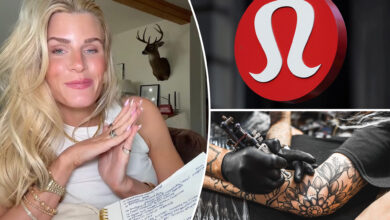These are the most common insecurities fueling your dating app obsession

Are you constantly swiping? This may be why.
Dating apps have become the go-to platform for people looking for love — but for some, it’s fueling insecurities and enabling bad habits.
A new study, published in Computers in Human Behavior, revealed the common insecurities that could be fueling your dating app obsession.
People who are insecure about their looks, anxious about being in social settings and constantly think they’re being rejected are more likely to use dating apps in a problematic way.
The research, conducted with over 5,400 young adults aged 18 to 35 in Taiwan, aimed to understand how certain psychological traits influence the way individuals interact with dating apps.
With millions of users worldwide, these platforms are more than just a casual means to meet new people—they’re increasingly shaping the way young people present themselves and form relationships.
But, as this study suggests, there’s a dark side to hiding behind a screen.
Researchers found that individuals who experienced high levels of anxiety — specifically about their appearance, social settings and rejection — tended to view dating apps as a helpful tool for self-presentation and relationship-building.
Because these users are often uncomfortable with face-to-face interactions and worried about their appearance, they are drawn to the relative safety and control of their dating app profile.
Dating apps allow them to curate their image and engage with others in a way that feels less intimidating.
Many participants in the study said that these apps made it easier to form connections — especially those with higher levels of anxiety.
While these perceived benefits may sound positive, they come with unexpected dangers.
Singles with higher levels of anxiety were also more likely to have problematic habits when using dating apps — like compulsively checking their messages, constantly re-evaluating their profiles, or excessively focusing on potential rejections.
These people were also more likely to report feelings of frustration or distress when their interactions on dating apps didn’t go as planned.
In the worst cases, these users could develop unhealthy relationships with the apps, using them to avoid real-world social interactions, which would in turn deepen their fear of rejection.
Overall, anxious individuals do seem to benefit from the ability to manage their image and relationships digitally, making social connections easier. However, their vulnerabilities — especially rejection sensitivity— can lead to excessive reliance on these platforms, which may ultimately harm their mental health, well-being and ability to connect IRL.
Young adulthood is a critical period for developing social skills and emotional resilience, making Gen Z and millennials particularly susceptible to the consequences of using dating apps in a problematic way.




